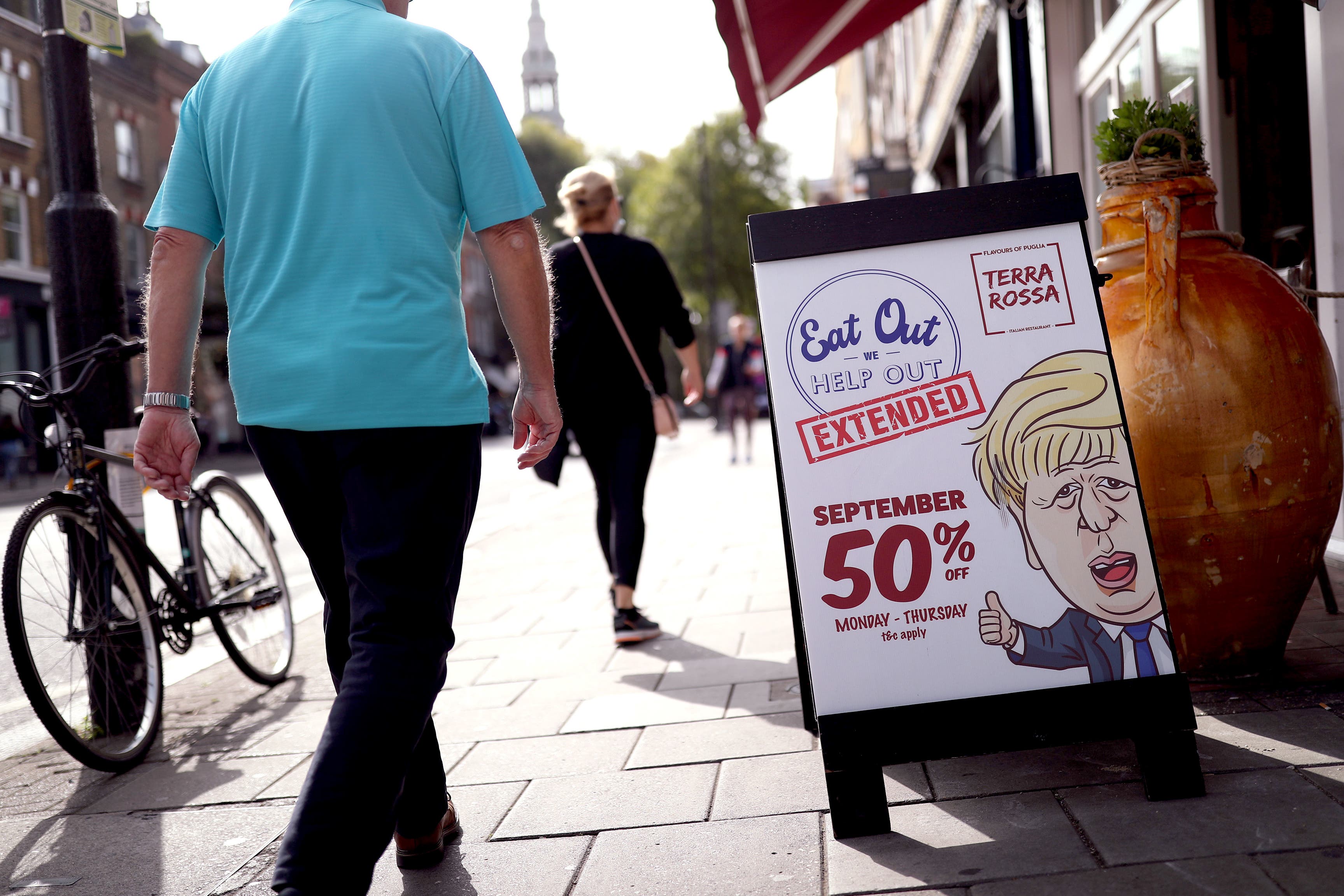‘Eat Out to Help Out’ was a good idea – and the Covid inquiry’s rewriting of history is dangerous
The then chancellor had to protect public health and the economy, writes John Rentoul. Which is why I raise a glass to his efforts to save the hospitality industry (as I did in my Covid gastropub)


The Covid inquiry appears to be trying to rewrite history backwards. It has started with what “everyone knows”, which is that Boris Johnson locked down too late.
Everything else follows from this: Johnson ignored early warnings; he was too slow to implement lockdown once he had decided; he was too keen to open the economy up again; and Rishi Sunak, who was then chancellor, took a disastrous decision to subsidise people to go back into restaurants in August 2020.
None of this is true, but the inquiry seems to be following the popular myth instead of questioning it. Witnesses repeatedly contradict the assumptions behind the questions they are asked, but the caravan rumbles on.
What the inquiry actually heard is that the government’s scientific advisers held back from recommending a lockdown in February and early March because they didn’t think it would work. Once they understood more about the virus, they were still reluctant to advise restrictions on social mixing because, as Chris Whitty, the chief medical officer, said today, he was worried about the economic effect on the poor.
But the only thing the inquiry wanted to know was whether the lockdown was “too late”. It was only possible to say that in hindsight, Whitty said, and it wasn’t because Johnson was resisting his advice.
When the scientists did advise ordering people to stay at home, Johnson agreed. Instead of pausing to wonder whether elected leaders should have followed scientific advice so slavishly, Lady Hallett, the inquiry chair, interrupted Helen MacNamara, who was deputy cabinet secretary at the time, to ask why it had taken so long to announce the lockdown once the prime minister had decided. MacNamara said that the government had acted about as quickly as it possibly could in such an extreme situation. That didn’t fit the story, so the inquiry pressed on with its prepared questions.
Yesterday, the caravan rumbled on to Eat Out to Help Out (EOTHO), during the evidence from Patrick Vallance, Whitty’s co-chair of Sage, the Scientific Advisory Group for Emergencies. Again, “everyone knows” that this was a bad decision, and the only purpose of the inquiry seems to be to emphasise how bad it was and to blame Sunak for it.
I disagree. And not just because I used the scheme and enjoyed some excellent subsidised food at my local gastropub. But also because I can remember what Britain was like at the time. We had been through lockdown at a stupendous expense to the public purse and a great cost to the economy. The furlough scheme had protected millions of jobs, but there was an urgent need to get people back to work and to get the economy going again now that coronavirus cases had fallen to near zero.
Yes, there were a lot of people who were nervous about the scheme. There were worries about a second wave and new variants. But these were unknowns, whereas the damage to the economy, and especially to the low-paid hospitality sector, was known and serious. At the time, a second wave was assumed to be on its way, but it didn’t arrive until many weeks after EOTHO closed. Any connection between the two is impossible to prove and would be lost anyway in the general increase in social mixing that had to happen.
There had to be a balance that summer between staying locked down forever and opening up completely, and the idea that EOTHO alone tipped the balance in the wrong direction seems implausible. The second-wave trajectory in the UK was comparable to that in France and Italy. If anything, we should have opened up much earlier.
As for new variants of the virus, it was not until December that the Kent variant drove up infections again, and shifted the balance of argument between restrictions and liberty once more. And the critical fact about EOTHO is that Vallance and Whitty could have protested about it but did not.
Everything about the inquiry seems to be focused on why we didn’t lock down earlier or harder or stay locked down longer. There are far too few questions about whether statutory lockdowns were needed at all. There are too few questions about whether it was right or prudent to borrow so much money to pay for unconditional furlough, or whether it was socially just to close down so much of the economy for so long, or whether it was right to close the schools.
The media coverage of the inquiry makes this bias even worse, because there is more attention paid to a third-hand account from Dominic Cummings that “Rishi thinks just let people die” than to the Treasury’s attempts to save jobs and livelihoods.
Sunak was right to pump money into the economy, and to try to keep the hospitality industry from collapse. The inquiry is letting the public down by failing to give sufficient weight to these arguments; and it is dangerous if it feeds conspiracy theories about politicians pursuing policies against the public interest, when the arguments at the time were finely balanced either way.
Join our commenting forum
Join thought-provoking conversations, follow other Independent readers and see their replies
0Comments